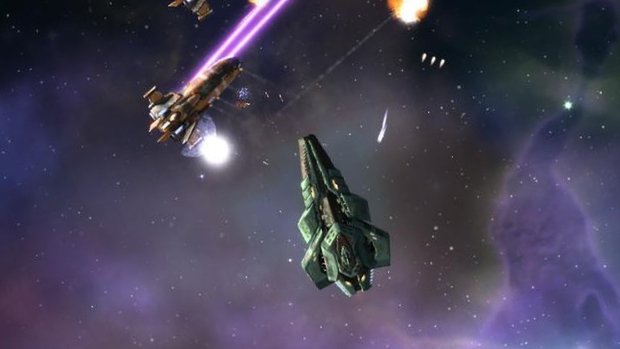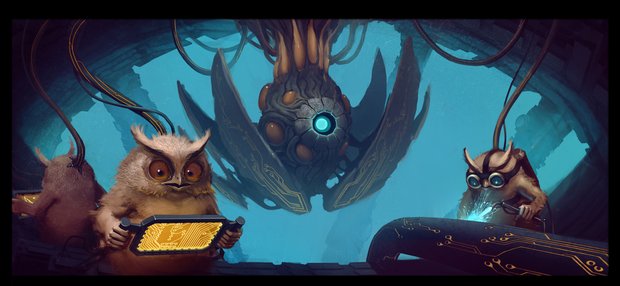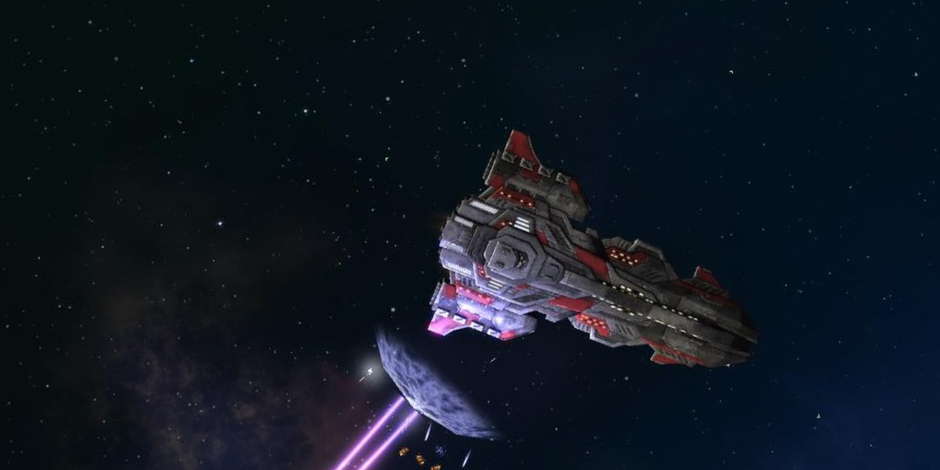GamesRadar+ Verdict
Pros
- +
Fun
- +
accessible shipbuilding
- +
A colorful cast of alien species
- +
Automation features that let you focus on the fun stuff
Cons
- -
Dry
- -
sparse tutorials
- -
Lack of innovation
- -
Unintuitive interface
Why you can trust GamesRadar+

Abandon all hope, those who have never played a 4X strategy game before. StarDrive is not the kind of experience that offers a welcoming introduction to the genre. Its only tutorials come in the forms of either pseudo-PowerPoint presentations or unfriendly blocks of text. The user interface does not work the way you want it to, and it’ll take you many hours (and an unholy amount of accidentally closed windows and misplaced spaceships) to get used to it. This is a game that’s as forbidding as the cold recesses of space it depicts, but once you get into it, you’ll find no shortage of enjoyable alien slaughter, spaceship destruction and planet terraforming - even if it all feels a little too familiar.
Currently, there's only one game mode: Sandbox, where you're plopped into a random map with a civilization of your choosing and told to conquer or assimilate all that you find. Each faction (“species” might be a more applicable term) can be played using preset traits--starting flagships, attack bonuses, etc.--or by picking your own from the game’s large lists. This allows for some very enjoyable tinkering, giving players a chance to optimize their civilization for the way they like to play. It’s also worth noting that the alien races employed in StarDrive are wonderfully weird and refreshing, from samurai bears (you read that right) to some kind of Portal-inspired AI that has a race of owls working for it (you read that right, too).
"StarDrive is not the kind of experience that offers a welcoming introduction to the genre."
Then, with your civilization selected, it’s time go about the gruesome business of conquering the galaxy. It’s all standard 4X fare, and executed in a way that’s entirely inoffensive, but not great either. You construct ships, or custom build your own. You research technology. You conduct diplomacy, which is one area where StarDrive is behind the curve: Interstellar war negotiations are alarmingly simple, entirely unpredictable, and burdened by an especially difficult UI. You harvest resources. You colonize planets--which StarDrive is smart enough to make as simple as the click of a button, no unit-wrangling required. You invade enemy solar systems. There is nothing here that expands upon previous genre entries; it’s a paint-by-numbers 4X game with little to differentiate it from the pack.
Visually, it’s clean and crisp, with a variety of planets to stumble upon and pretty-enough space scenery to behold. But when zooming out to view a large chunk of the map, it can become hard to see much at all--units become very, very small dots--which can lead to much squinting and the occasional misplaced ship.
In addition to spacecraft, you control ground troops, which are used to take over planets or board enemy vessels. This section of the game comes off as half-baked, with planetary invasions often feeling like a crapshoot, and ships--regardless of their value--being laughably easy to take over. The first time a single space marine hops into your best frigate and goes speeding off to some corner of the galaxy, you’ll likely damn your entire intergalactic empire and close the game.
"The most fun you’re likely to have in StarDrive is the time you spend shipbuilding."
The most fun you’re likely to have in StarDrive is the time you spend shipbuilding. You can custom-build ships from the ground up, placing bulkheads, weapons, power supplies, and command rooms on a grid system. Combined with StarDrive’s deep combat mechanics, which emphasize ship angles and weapon firing arcs, this feature becomes really fun. You’ll find great joy in fine-tuning your designs to counter your enemies’ custom units and tactics. You can also manually control ships’ movements and fire their weapons with your keyboard and mouse. While this might sound like your opportunity to slip into the cockpit of your recently invented 57-turret monstrosity and blast those samurai bears back where they come from, it’s really not. The controls are too awkward, making it maddeningly difficult to attempt anything even close to effective combat maneuvers.
Smartly, StarDrive includes robust automation features. You can have the AI take care of a lot of mundane tasks, such as managing and settling colonies, or the constructing of warp gates. This helps to lessen the overwhelming effect of StarDrive’s massive scope, letting you focus on important galaxy-conquering business.

"...it’s a paint-by-numbers 4X game with little to differentiate it from the pack."
StarDrive is not a bad a game, per se--but it's a lot like the games that came before it, and does little to differentiate itself from the pack. It has character, sure--what game with samurai bears wouldn’t? But when it comes time to get out there and explore, expand, exploit, and exterminate? You’ve played this before, and it was probably better. If you’re simply looking for a new game to dominate the universe in, StarDrive will serve you well enough, but those looking for a new and novel experience will need to set course for elsewhere.
More info
| Genre | Strategy |
| Description | Starting with a single planet and a small number of space-worthy vessels, you forge out into the galaxy, exploring new worlds, building new colonies, and discovering the StarDrive universe. |
| Platform | "PC" |
| US censor rating | "Rating Pending" |
| UK censor rating | "" |
| Release date | 1 January 1970 (US), 1 January 1970 (UK) |



